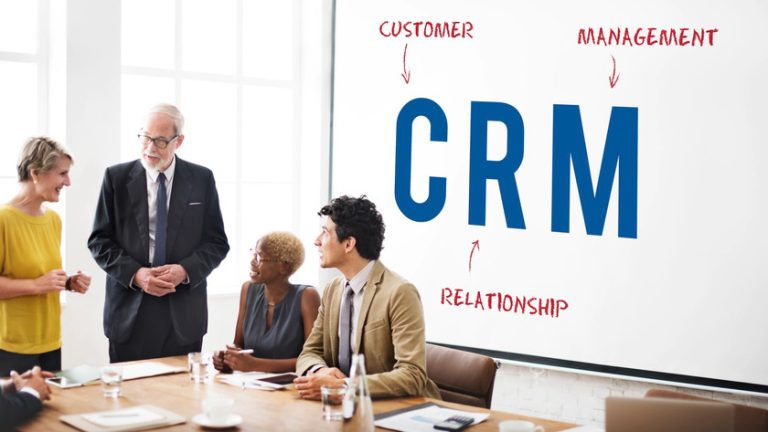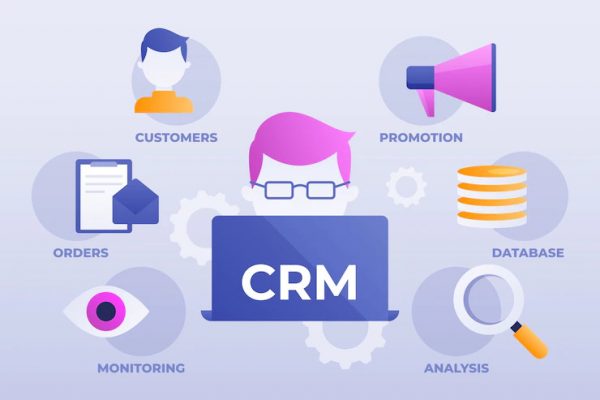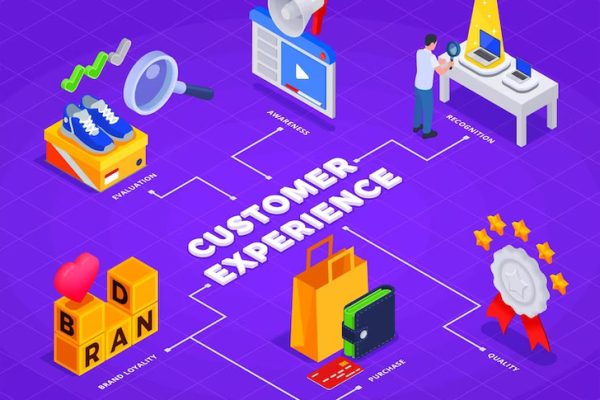If you’re in charge of managing customer relationships and providing customer service, then a CRM is an essential part of your business. A CRM (Customer Relationship Management) platform allows you to track customers, manage their information and communicate with them via email or phone.
This can be especially useful if you work with multiple companies at once or have different departments within your organization that need access to customer data.
In this article, we’ll show you the things to know before choosing a CRM.
1. Decide Which CRM Features You Need
Before you can choose the best CRM, it’s important to know what features you need. This will help you find out if a particular tool meets your needs and make sure that you don’t buy one that isn’t going to be useful for your business.
You should consider these questions when looking at CRMs:
- How do I use my current system? Do I have all of the features I need?
- What are my goals for this system (e.g., sales, customer service)?
- What kind of data do I already have in place? Is there any duplication between systems or databases within my company?
2. Figure Out Your Budget
If you’re just getting started, it may be difficult to justify spending hundreds of dollars on a CRM. However, if your business is growing and expanding rapidly—and especially if it has multiple locations or employees—you may need the most sophisticated CRM available.
A good rule of thumb when budgeting for technology is that the more complex the platform or software suite is, the more likely its price will be too high for small businesses like yours (but not necessarily so).
For example: If your company consists solely of one person who uses Salesforce as their main source of communication with clients and salespeople alike; then this might not even qualify as an enterprise solution!
3. Familiarize Yourself with Popular CRM Vendors
- Salesforce: The world’s leading CRM platform and one of the most popular.
- Zoho: A cloud-based CRM that works well for small businesses.
- HubSpot: A marketing software company that offers a free version of its software as well as paid plans. You can also try it out on your own website with their landing page builder tool called LeadPages or use their help center where you can ask questions about how to use the software or get answers from their support staff.
- Insightly: An open source lead generation solution that helps companies generate leads into their sales funnel by automating processes like marketing automation, social media campaigns, email automation and more.
- Freshsales: A cloud-based CRM solution designed specifically for B2C businesses but also works great for many other types of companies too! It has everything in one place so there’s no need to switch between different tools if you need something specific like customer relationship management (CRM). In addition, it allows users to quickly create reports based on any metric they choose such as number of leads generated within a certain time frame or dollar amount generated from each dollar spent during a certain period etcetera.
4. What Customer Data Will You Store in Your CRM?
When you choose a CRM, you’ll want to make sure it’s going to work for your business. The first thing to consider is what data will be stored in the CRM. Will it store all of your customer contact information? Or only some of it?
What types of information should be stored in an effective way and how can they be retrieved from the system when needed? There are many different ways that this could be done; for example, some companies use email addresses and phone numbers as unique identifiers for each customer.
Other companies may store additional information such as name or address so that if someone updates their contact details later on—like moving house or changing jobs—the new address is automatically recorded by their CRM software (or other systems).
5. Analytical Capabilities
Analytical capabilities are important to help businesses make business decisions. For example, if a customer is unhappy with the quality of their product or service, it’s important that the CRM can measure this and provide data on why they are dissatisfied.
This helps improve customer service by enabling your team to focus on improving processes and identifying issues before they become serious problems for customers.
You should look for a CRM that can handle multiple types of data such as sales pipeline tracking as well as historical sales figures from past years so that you can analyze trends over time.
6. Numerous Users Who Use the CRM Platform
The vital step in choosing your CRM platform is to determine how many users will use it. This can be done by asking yourself a few questions:
- What are my top priorities?
- Do I need an app for employees or customers?
- What features do I want and what features don’t I need?
7. Consider Integrations and Technology Requirements
Integrations are important because it allows you to easily add new features to your system. This means that you don’t need to re-implement your system every time you want to add a new feature or integrate with another system.
The best way for this is by using an integration platform such as Zapier or IFTTT (if this then that).
They will help automate tasks between different services so that they can easily be managed from one place instead of having them spread across several different apps and systems which could become confusing if not managed properly.
8. Security and Compliance Requirements
You should also consider the regulatory environment in which your CRM will be used, such as GDPR. If there are strict data protection requirements, then it’s important to understand what they are and how they affect your CRM.
To protect sensitive data from being accessed by unauthorized parties or hackers, make sure that encryption is implemented throughout every step of its lifecycle.
Encryption ensures that only authorized users can access the information stored on a device (e.g., laptop or tablet). It also protects against any unauthorized access attempts by using passwords and other methods like two-factor authentication (2FA) where one factor is something you know—your password—and another factor is something you have—the device itself with its associated software installed on it!
9. Understand Business Needs in Order to Make an Informed Decision.
Before you choose a CRM, it’s essential that you understand what your business needs in order to make an informed decision.
Here are some things to keep in mind:
- A good CRM will help you achieve your business goals by giving insight into how customers interact with products or services, which can help guide future product development and marketing efforts.
- You should know what features you need in order for them to be effective for your organization (e.g., if there is no way for users on mobile devices or tablets).
- You need to know how much money there is left over after buying everything else needed for success—this includes software costs as well as hardware costs such as computers and printers/scanning devices; IT infrastructure support; training resources; additional staff time spent on learning new processes. Related specifically towards implementing this software program into their daily workflow process flowchart diagram (if applicable).
Conclusion
It’s important to take some time out to think through the different features of a CRM platform.
It’s also essential to make sure that your business will benefit from the features you choose. These are the things to know before choosing a CRM. With these tips in mind, we hope that you can find the right CRM solution for your company!






I see You’re actually a good webmaster. The site loading pace is incredible.
It seems that you are doing any unique trick. Furthermore, the contents are masterwork.
you’ve performed a great activity in this matter! Similar here:
e-commerce and also here: Dobry sklep
Good day! Do you know if they make any plugins to help with
SEO? I’m trying to get my blog to rank for some targeted keywords but I’m not seeing very good
success. If you know of any please share. Thank you!
You can read similar article here: AA List